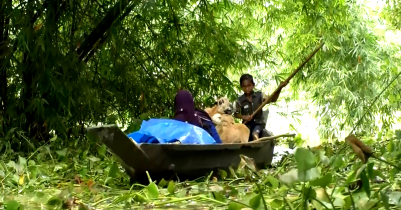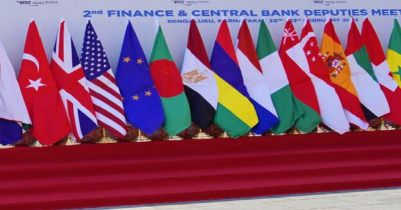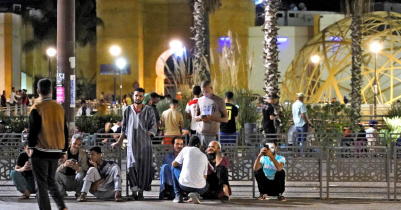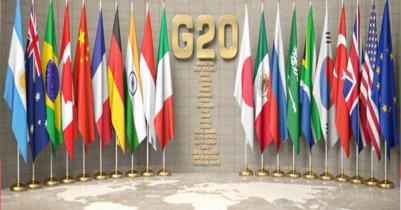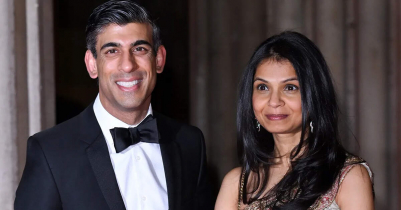Eye News Desk
What is behind Erdogan`s Nato U-turn?
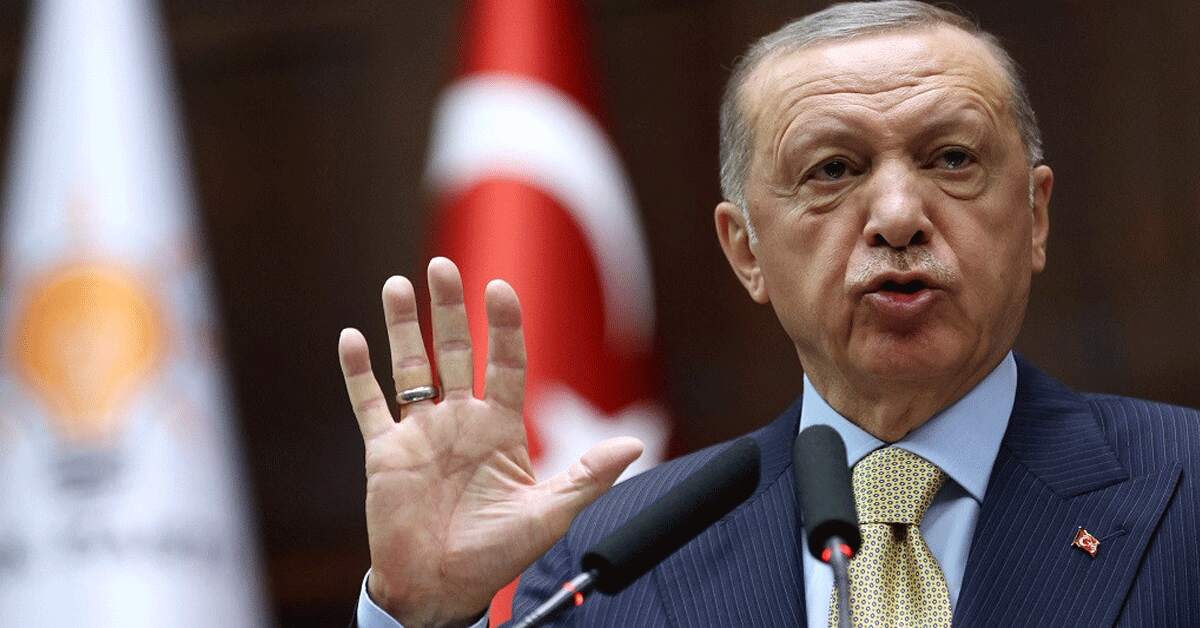
Twice on the same day, Turkish President Recep Tayyip Erdogan managed to stun the West: First with an additional requirement for Sweden's Nato membership and then with a surprise last-minute compromise.
On Monday, Nato's Secretary General Jens Stoltenberg announced that Erdogan had agreed to forward Sweden's bid to join the military alliance to the Turkish parliament "as soon as possible."
Before Ankara's confirmation was announced, Erdogan had made one last move that surprised everyone. At a news conference before leaving Istanbul for the Nato summit in Vilnius, he had raised another condition for Sweden's Nato membership.
The Turkish president had said that his country had been kept waiting at the gates of the European Union for more than 50 years, and had addressed Brussels, saying, "Pave the way for Turkey in the European Union, and then we will pave the way for Sweden, just as we paved the way for Finland."
Puzzled by this move, Brussels rejected Erdogan's demand, underlining that Nato and the EU are separate processes. However, a joint statement issued after the Nato agreement said Sweden would "actively support efforts to reinvigorate Turkey's EU accession process, including modernization of the EU-Turkey Customs Union and visa liberalization."
Is Turkey turning its face to the West again?
Although the pro-government media in Turkey portrayed Sweden's support as a victory for Erdogan, experts say this is not a new achievement for Ankara, as Sweden has long been one of the countries in the EU that has been favorable towards Turkey's membership. Ozgur Unluhisarcikli, the director of the German Marshall Fund's office in Ankara, believes that Erdogan's move can still be considered an important message.
"I think after the elections, Erdogan is seeking more positive relations with the US and Europe, and he wants to be accepted by them," Unluhisarcikli said. "Take his words about paving the way into the EU, for instance; nothing will happen in this regard, and he knows that. But what he wants to say is, 'Do not exclude me.'"
Another theory is that Turkey, with record inflation rates and a rapidly depreciating lira, is shifting its policy of balance between Russia and the West in favor of the West mainly for economic reasons.
Ankara could reach economic advantages by modernizing the EU-Turkey Customs Union. This modernization aims to expand the union to include agricultural products, services sectors, and government procurement in addition to industrial products. Turkish business also seeks to protect itself against the EU's sophisticated trade agreements with third countries.
Turkey's EU Journey and human rights violations
Negotiations about Ankara's EU accession, which began in Brussels in 2005, have failed to make concrete progress. Especially in the aftermath of the attempted coup in July 2016, negotiations have come to a standstill as the anti-terror measures taken by Ankara have led to human rights violations.
Observers in Europe argue that for a significant revival in Turkey-EU relations with a perspective of membership, Turkey must first normalize its relations with the Council of Europe (CoE), an international organization founded to uphold human rights, democracy and the rule of law in Europe. It's independent of the EU, but no country has ever joined the bloc without belonging to the Council of Europe first.
Turkey is a CoE member, but their relationship has been rocky in recent years. Ankara has not followed the ruling by the European Court of Human Rights, the CoE's best-known body, to "immediate release" Osman Kavala, a Turkish activist and philanthropist who has been jailed since 2017, and Selahattin Demirtas, a prominent Kurdish politician who has been imprisoned since 2016.
If there is no progress in the Kavala case, the Council of Europe will start negotiating possible sanctions against Turkey this fall. So there is a lot more Ankara needs to do for the EU accession process than approve Sweden's Nato membership.
Will Ankara get the jets it wants from Washington?
While Turkey's EU journey is not headed toward a realistic destination in the near future, Ankara's decision on Sweden could be the beginning of new dealings with Washington.
Recent diplomatic contacts with the United States also contributed to the consensus reached in Vilnius. US President Joe Biden welcomed his Turkish counterpart's decision on the eve of the Nato summit.
"I stand ready to work with President Erdogan and Turkey on enhancing defense and deterrence in the Euro-Atlantic area," Biden said in a statement released by the White House.
Ahead of the summit, another vital statement came from Vilnius. US National Security Advisor Jake Sullivan said the US would likely proceed with the transfer of F-16 jets to Turkey, in consultation with Congress.
While both Ankara and Washington argue there is no link between the two issues, the developments have led to speculation that Erdogan's withdrawal from blocking Sweden's Nato path has brought Turkey one step closer to an F-16 deal.
Ankara has been repeating its desire to purchase 40 new Lockheed Martin Corp F-16 fighters and some 80 modernization kits for its existing warplanes. However, despite Biden's efforts to win Congress' support on the issue, some members of Congress, notably Senate Foreign Relations Committee Chairman Bob Menendez, were not convinced of the sale because of Turkey's purchase of the Russian S-400 missile systems, as well as other concerns ― including Turkey's blocking Sweden's membership to the North-Atlantic alliance.
After Erdogan gave the green light to Sweden's membership, Menendez also gave a cautiously optimistic message. The US senator said that despite his reservations, he is discussing the issue with the Biden administration and that he could decide within the next week regarding the status of his hold on the fighter jets.
"If they [the Biden administration] can find a way to ensure that Turkey's aggression against its neighbors ceases, which there has been a lull the last several months, that's great, but there has to be a permanent reality," Menendez said.
"The F-16s might not come immediately, but it's likely that strong assurances were given that they would eventually be delivered," Asli Aydintasbas, a former journalist from Turkey, argues in her Washington Post piece. According to Aydintas, a broader reset could be in the making if both Turkey and the West play their cards right.
Only time will tell whether the new Nato developments will begin a new chapter for Turkey with its Western allies.
Read More
- Dubai-bound flight catches fire after taking off from Nepal
- Turkey`s homegrown 5th-generation fighter jet named KAAN
- Shihab Chottur reaches Makkah from India in 12 months
- Eid Ul Adha 2023 in Saudi Arabia!
- Italy will take 82 thousand workers, the is in March
- World`s first 3D-printed mosque to be constructed in Dubai
- India gets new parliament building
- Karnataka: Modi invokes `The Kerala Story` to target Congress
- Imran Khan likely to be in custody for ‘4 to 5 days’
- Two Sylheti killed in Portugal



